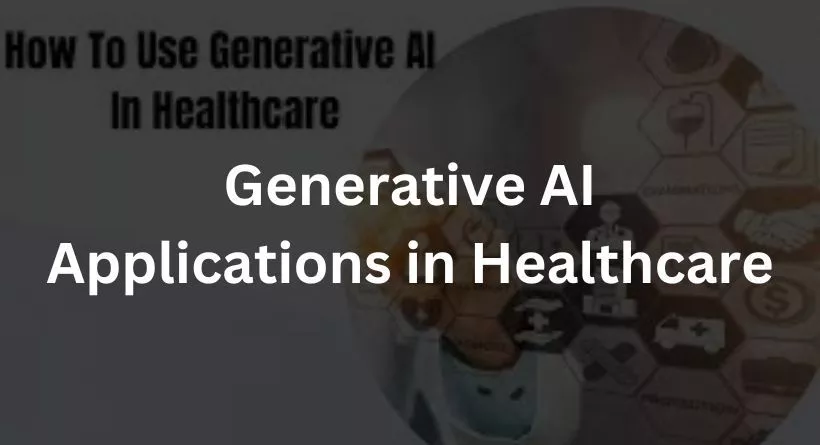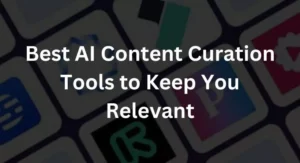
In the ever-evolving landscape of healthcare, Generative AI has emerged as a beacon of light, illuminating new pathways to innovation and empowering us to address pressing health challenges with unprecedented precision, efficiency, and personalization. This article explores the transformative role of Generative AI in healthcare, from accelerating drug discovery to enhancing disease diagnosis and beyond.
Innovation has always been at the core of healthcare, with technology advancements continuously improving patient outcomes and overall care quality. However, recent times have witnessed the rise of Artificial Intelligence (AI) as a potent tool with the potential to revolutionize medical technology projects across all sectors of healthcare.
Generative AI processes, in particular, have gained prominence for their ability to drive innovation and unlock unparalleled possibilities within the industry. These processes rely on advanced algorithms that create fresh data sets, learning from human creativity and decision-making approaches. This article delves into the ways Generative AI is reshaping healthcare innovation.
Accelerating Drug Discovery

Drug discovery is a complex and time-consuming process, often taking years or even decades to yield promising results. Generative AI is changing this landscape, offering sophisticated solutions for tackling previously untreatable conditions such as tumours or fibrosis.
Compared to traditional methods like manual logging or physical deliveries, Generative AI excels in terms of efficiency. This revolutionary technology has transformed the pharmaceutical sector, reducing risks during treatment procedures and speeding up the drug development process significantly.
You may also like reading: Embracing the AI-Driven Retail Revolution: Strategies for Thriving in a Competitive Landscape
Personalizing Medication and Care
In the ever-changing field of medicine, personalized healthcare solutions are increasingly crucial. Generative AI is facilitating this by leveraging digital health tracking technologies. These devices collect real-time wellness metrics, such as cardiac rhythm variability, blood oxygen saturation, and sugar concentration. Generative AI systems then analyze this data to provide individualized medical advice and treatment recommendations.
This approach has proven effective in managing conditions like heart disease, allowing for a shift from reactive care models to preventative ones. The integration of digital health trackers and remote monitoring gadgets, powered by Generative AI, is transforming healthcare delivery.
Enhancing Disease Diagnosis
Generative AI has greatly benefited physicians and healthcare providers by enhancing disease diagnosis. By analyzing vast amounts of data, including medical records, diagnostic reports, and imaging like MRI scans and x-rays, Generative AI improves the detection of potential health risks.
This technology goes a step further by creating diagnostic decisions and custom-tailored healthcare plans based solely on symptom inputs. It streamlines the diagnostic process, ensuring faster and more accurate results.
Risk Prediction
In the face of an ever-expanding variety of virus species, Generative AI plays a critical role in analyzing disaster scenarios and estimating risk probabilities. By scrutinizing protein sequenced datasets, it can generate novel antibodies to combat infectious diseases and enhance epidemic response measures. Recent events, such as the COVID-19 pandemic, have underscored the importance of predictive tools in the healthcare sector.
Enhancing Operational Efficiency
Efficiency in healthcare institutions is paramount, not only in direct patient care but also in administrative tasks. Generative AI can improve overall operational efficiency by automating time-consuming tasks like data entry and processing fees for patients. This automation frees up personnel for more critical responsibilities, contributing to a smoother healthcare ecosystem.
Key Considerations in Using Generative AI

While Generative AI holds immense potential, it comes with its own set of challenges in healthcare. These include:
Safeguarding Confidentiality in Patient Information
Patient confidentiality is a top priority in healthcare. Integrating Generative AI systems that require access to patient data adds complexity and demands strict adherence to regulatory norms. Patient data must be handled with care to protect sensitive information.
Misinterpretation of AI Data
The use of inaccurate data in healthcare decision-making can have severe consequences. Generative AI may generate false or misleading content, making it essential for professionals to thoroughly review data generated by AI tools before applying it to their work processes.
Requirement of Proper Oversight
Proper oversight is crucial for the effective use of Generative AI in healthcare. Regulations for this technology are intricate, and medical teams and patients face risks if AI is misused in healthcare settings.
Potential Biases and Ethical Dilemmas
Generative AI’s reliance on existing datasets may introduce biases into its recommendations and diagnoses. Additionally, the increased reliance on technology for diagnosis and care may have ethical implications related to job loss in healthcare.
Understanding and Implementing AI
The multifaceted nature of AI poses challenges for healthcare professionals. While AI can supplement certain job roles, there is a shortage of professional’s adept at developing, testing, and training AI tools. An organizational grasp of AI is essential for its effective use in healthcare.
Conclusion
Generative AI is a game-changer in healthcare, revolutionizing drug discovery, personalized medicine, disease diagnosis, risk prediction, and operational efficiency. However, it also comes with challenges, including data integrity, oversight, biases, and ethical considerations. Understanding and harnessing the power of Generative AI is essential for its successful integration into healthcare.
FAQs
1. How does Generative AI speed up drug discovery in healthcare?
Generative AI accelerates drug discovery by offering efficient solutions tailored for tackling complex diseases, reducing risks involved during treatment procedures, and streamlining the development process.
2. How does Generative AI personalize medication and care?
Generative AI leverages digital health tracking technologies to collect real-time wellness metrics and provide individualized medical advice and treatment recommendations, transforming healthcare from reactive to preventative.
3. How does Generative AI enhance disease diagnosis?
Generative AI enhances disease diagnosis by analyzing vast amounts of data, including medical records and diagnostic reports, improving the detection of potential health risks and streamlining the diagnostic process.
4. What is the role of Generative AI in risk prediction for infectious diseases?
Generative AI plays a critical role in risk prediction by analyzing disaster scenarios and estimating risk probabilities, contributing to the response to infectious diseases and epidemics.
5. What are the key challenges in using Generative AI in healthcare?
Key challenges include safeguarding patient information, preventing the misinterpretation of AI data, ensuring proper oversight, addressing potential biases, and understanding and implementing AI effectively in healthcare.





